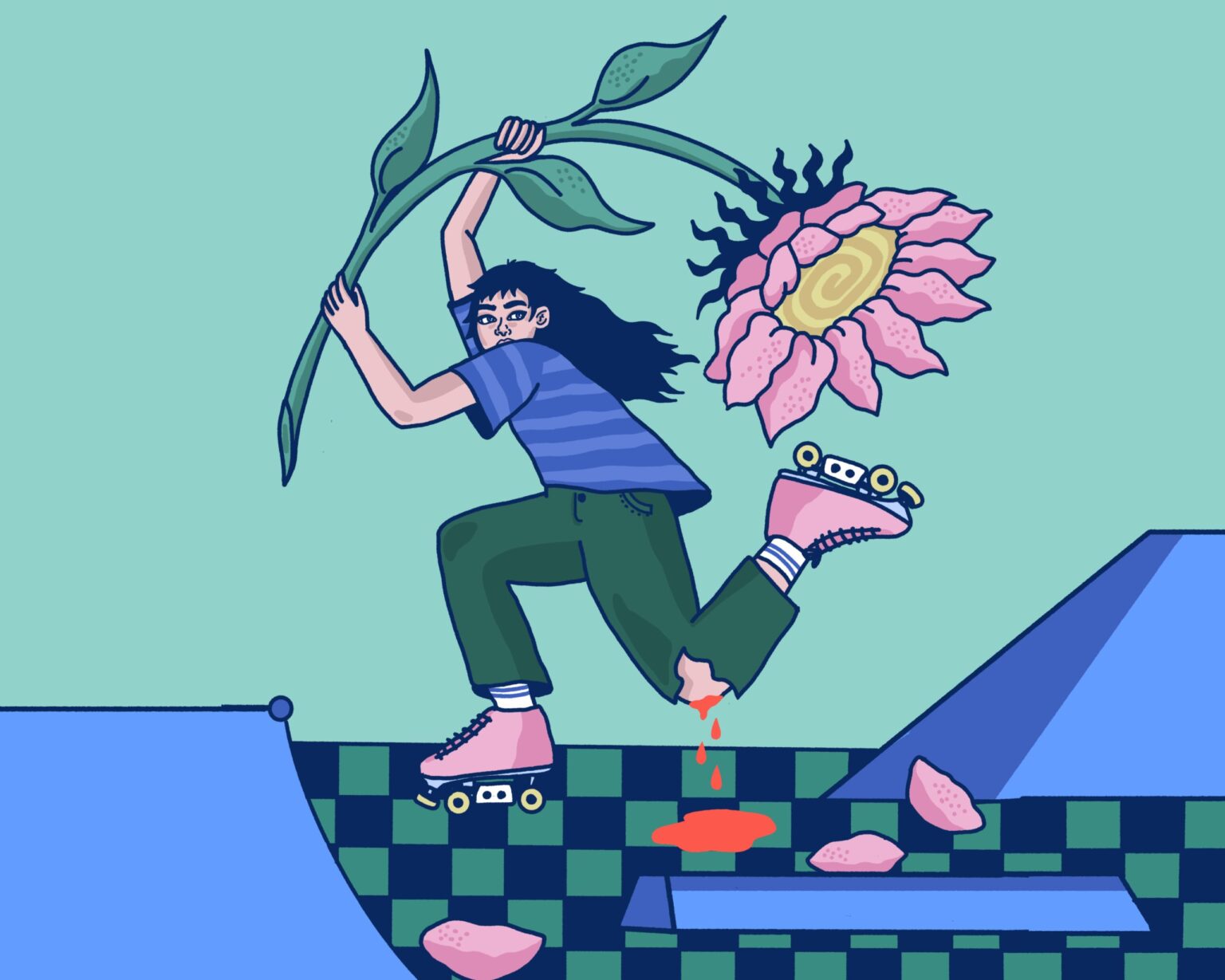Dear Roller Skate Community,
in light of the current events, and the discussion around “setting standards”, I want to share some concerns about the recent development in quad street skating culture. But I want to do this in a way that does not dismiss or undermine the appreciation for the efforts and the work that creators dare to put out there. Because showing their work puts them in a vulnerable position. If you are creating a video and posting it online, you are sharing a vision, which will not always be a vision everyone shares or likes. And people will always find points of criticism, and sometimes they do so in a hateful and uncaring way.
I fully appreciate, and in many ways admire, the very talented group of people that have been creating visual material for roller skating. I really love that it looks like a group of strong, passionate, very talented women doing what they love and unapologetically having fun with it on the streets, in public spaces.
To address my concerns, I would first like to present a quote from one of my favorite academics, the Dutch empirical philosopher Annemarie Mol, which sums up my main concern:
“This is a lesson from the women’s movement: striving for equality between ‘women’ and ‘men’ meant that women were ‘allowed’ to become just like men — insofar as this is practically possible. But, however nice this may sound, it implies than ‘men’ remain the standard. What is more: the limits of what is ‘practically possible’ work out in such a way that, when it comes to it, women will never be ‘just like men’. Thus, in the women’s movement emancipation has been supplemented with another strategy: that of feminism. Instead of moving figures around, feminism interferes with the categories. It questions the very definitions of ‘woman’ and ‘man’, it interferes with the masculine standard.” (Annemarie Mol, The Logic of Care.)
Why this quote? Because I feel like in this skate-media moment that roller skating is experiencing right now, men remain the standard. The latest most celebrated roller skate parts look to me so much like skateboard or inline videos that were established in times when women and the LGBTQIA+ community weren’t actively involved. The glorification of slams and recklessness, the ableism, the pursuit of fast/gnarly/high/jaw drop tricks and obstacles, the fetishization of self-destructive behavior, the worship of youth, are all very present in the standard skate culture and seem to have been adopted without a second thought in some of the most visible street parts featuring roller skaters. And yes, in general we want to see something extraordinary when we watch a video, and not what we see in our everyday life anyway. But exceptional can go in many directions.
The Quad Community had an Image of Being Inclusive and Diverse
There´s many possible explanations, from cultural to biological, to why predominantly cis-male groups create environments that are ableist, competitive, reckless, and glorify strength and fearlessness. To keep it short and simple, I would say that the lack of caring obligations, menstruating bodies, pregnant bodies, possible harassment, homophobic and/or transphobic attacks, and the visual representation in skate media of their own kind, amongst other biosocial factors, are some of the reasons that put cis-males in an advantage when it comes to skating in the streets and doing gnarly tricks. These are a few reasons why a group of predominantly non-cis-males can never be just like men.
In a not-too-distant past, when I started skating as a mom in my late 30s in 2019, the quad community had a public image of being caring, inclusive, and diverse. A friendly gesture was appreciated just as much as a sick trick. It felt like a space where everything was possible, where you could express your most authentic self and find people who would support you on your journey. The lack of existing implicit rules and conventions, the lack of industry, sponsorships, contests, and monetary interest in the transition and street explorations of quad skating, made it feel like we were creating a new world. And “we” included not only the ones trying to make a living out of roller skating, or the ones doing the impressive tricks, but “we” were the people who put on skates and made it to the skatepark and onto the streets despite adversity But now there’s this idea that quad skating should progress, set higher standards, push each other. And I wonder if this inevitably will push the less technical and less gnarly skaters out of the visible part of skating (but hopefully not out of skating itself).
Street Skating is an Act of Resistance
And just to make it clear: I am an absolute hype woman when I see a quad skater clearing a huge gap, wall-riding, grinding, or whatever stunt someone is pulling, especially if it is in the ruins of capitalist infrastructure, and with different textures to see and hear. But my fear is that soon this will be all that there is to see. Able skinny bodies doing badass shit, pressuring each other to clear a bigger gap, jump off something higher, and push themselves to an unhealthy limit. Also, the idea of a “right way” of street skating is in my opinion contrary to what the streets offer. While the skatepark is designed to move in a certain way, have a certain flow, the streets are not designed to skate. So, to skate something that is designed for another use requires a certain openness of thought and creativity. Repurposing something like a corporate building or a piece of urban infrastructure is a subversive practice, deviant at its core. It is an act of resistance, a form of individual expression, and an intervention. The danger of one type of skate video being positioned over others is the presumption of such a thing as a unified definition of “street skating” and an implicit set of rules.
And then there’s the issue of representation. Representation matters. Seeing only or predominantly one kind of people gives the idea that this is it. And it could prevent people that don’t fit this standard from joining in this magical thing called skating. So, I want to encourage everyone who is not in this standard that is being imposed on us by algorithms and privileged media, to get loud, to skate and create, to keep shredding and to know: you matter, you are valued, you are an important part of this community, and you inspire others to get out and shine too. Watch the edits that are not super gnarly, watch the crew tapes and guerrilla style filming. Support alternative creators, consume community-led magazines. Let’s give everyone a room. Let’s keep the pluriverse alive. Let’s unset and reset the standards. Let’s interfere with the categories.

